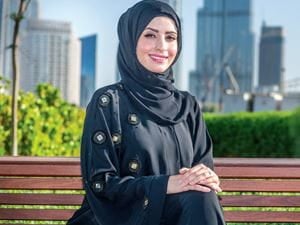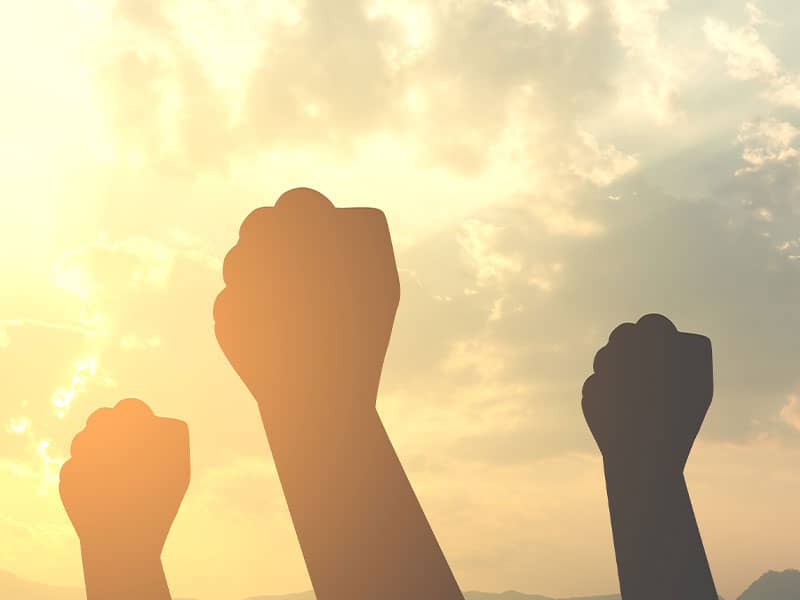
The attacks on 9/11 are among the greatest tragedies America has ever faced. Thousands died in flame and falls, and the New York skyline was forever altered, a void opened where once stood twin towers.
After the attacks, which were carried out by operatives of al-Qaeda, a terrorist movement made up primarily of Islamic extremists loosely led by Osama bin Laden, America simultaneously united and divided—like united with like, while those who didn’t look quite American enough were suddenly regarded with suspicion, especially if they looked like those who carried out the 9/11 attacks—if they looked like Muslims.
While the intense patriotism and unity following 9/11 may have been short-lived, the disunity has remained. One has only to look at the cultural warfare surrounding the 2016 presidential election to see this—some of the political rhetoric reveals an intense American fear of the Muslim community.
Rising, too, is violence against Muslims. Each time there is a terrorist attack, such as the November 13th attacks in Paris and the mass shooting in San Bernardino California on December 2nd, attacks and threats against Muslims surge. There is a tendency to conflate Islam with terrorism, especially in the wake of an attack. In such a climate, the slightest perceived provocation can lead to violence.
One such moment may be coming. Eid al-Adha, also called the Sacrifice Feast, is one of two Muslim holidays annually celebrated worldwide. It honors the willingness of Abraham to sacrifice his son in submission to God before God intervened, stopping him, sending an angel to inform Abraham that an animal may be sacrificed instead. This holiday is governed by the Islamic lunar calendar that is based on the cycles of the lunar phases rather than the revolution of the Earth around the sun.
And this year, the holiday may possibly begin on the evening of September 11th.
With one of the holiest of Muslim holidays possibly falling on the 15th anniversary of 9/11, an almost certain cultural misunderstanding looms. Addressing this idea, Habeeb Ahmed, president of the Islamic Center of Long Island, told the New York Times that “Some people might want to make something out of that,” going on to explain that some might misunderstand the nature of the festivities, thinking “Look at these Muslims, they are celebrating 9/11.”
Many are worried about how this coincidence will be viewed, and about what retribution may come of it--retribution rooted in misunderstanding. Muslim holidays are based on a non-western calendar that is widely unknown in America, creating the opportunity to mistake the date of the holiday as deliberately provocative, and an affront to the lives lost on 9/11. It should be noted that the Islamic community did not choose the date of this holiday—it was dictated by the phases of the moon. The crossroads between this Islamic holiday and the anniversary of the terrorist attacks is a coincidence.
There have been calls for the Muslim community to put off the celebration of Eid al-Adha until 9/11 has passed in a show of compassion. But to ask this is to suggest that all Muslims bear responsibility for the 9/11 attacks. It is this kind of generalization that builds walls between Americans.
Because of the potential for violence against the Muslim community during the convergence of 9/11 and Eid al-Adha, national Muslim officials have urged Muslim leaders to speak with authorities in order to ensure their security during the holiday, and some mosques which usually hold holy day services outdoors will be moving their prayer services inside this year. All Muslims publically celebrating Eid al-Adha are cautioned to be vigilant during this time.
Some imams—Muslim worship leaders—are making plans of a more inclusive sort. Shamsi Ali, the imam of the Jamaica Muslim Center in Queens, still plans to host his congregation’s outdoor prayer service, which attracts up to 20,000 people, and is one of the largest gatherings in New York City. Importantly, he also plans to invite non-Muslims to his services in order for all to learn about Muslim holiday traditions, and to pray for the victims of the 9/11 attacks. “If people are trying to build walls, we are building bridges,” Ali said.
Ali’s quote highlights a very important truth. The fact that Eid al-Adha may fall on September 11th is an opportunity—a chance to burn down the walls between cultures, and build bridges in their stead. The 15th anniversary of 9/11 doesn’t have to be a time of division—it can be a time of solidarity, of the complete unity that should have begun in American on September 11th, 2001.
Ali’s example is the one America needs to follow in the days to come. The alternative is a continuing cycle of violence and retribution, of alienation and isolationism. No one in America should fear for their lives because they choose to practice their faith. That fear runs contrary to the ideas America was founded upon. American was founded upon the ideas of equality, unalienable rights, and the rule of law, and to deny the fruits of those ideas to members of any people, race, or faith is to undermine America’s very identity.
Despite differences in religion, traditions, and histories, all Americans should share a common goal: peace. And with the human tendency to fear the unknown, peace can only come through familiarity, through learning and understanding other cultures—in this case, the culture of the Muslim community.
This unique crossroad between the western tragedy and Islamic celebration provides an unprecedented opportunity to foster that familiarity. With many New York imams planning sermons on dealing with loss and grief, and opening their doors to everyone in the community, the non-Muslim world has a chance to see the truth—Muslims are people, and what is more, they are Americans. They lost friends and family members in the terrorist attacks. They, too, breathed the smoke and the dust, and trembled as the towers fell.
Realize this, and the misconceptions surrounding this Muslim holiday will be dispelled, and the violence stopped before it ever begins.
“If you want justice and nothing but justice, you will inevitably get injustice. If you want justice without injustice, you must want love.”
- Miroslav Volf

